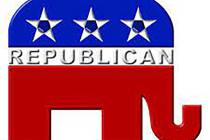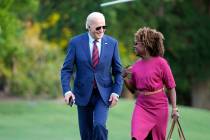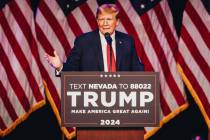New Nevada law gives some voters no choice in 4 races
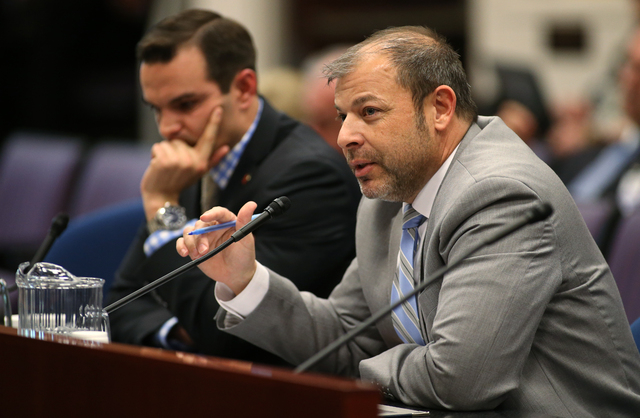
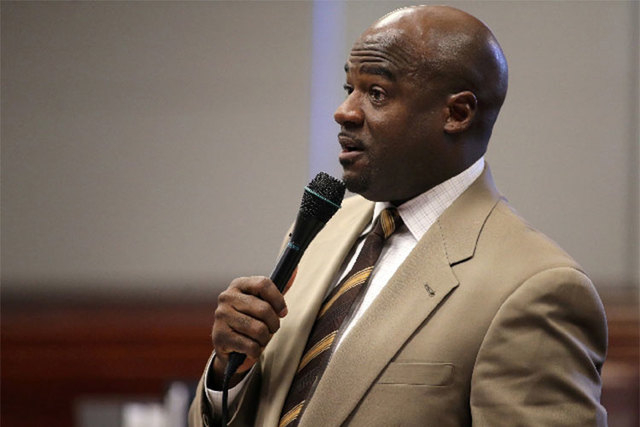

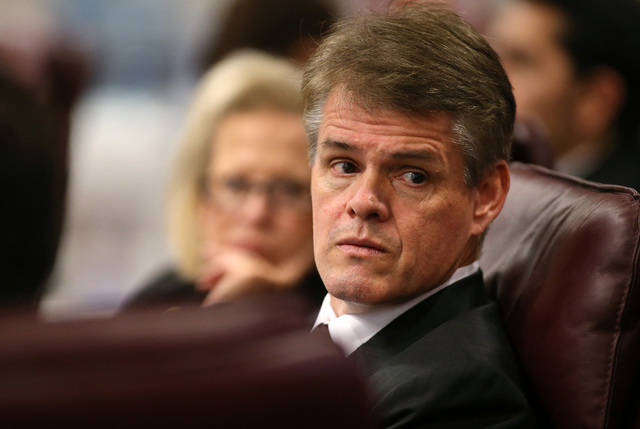
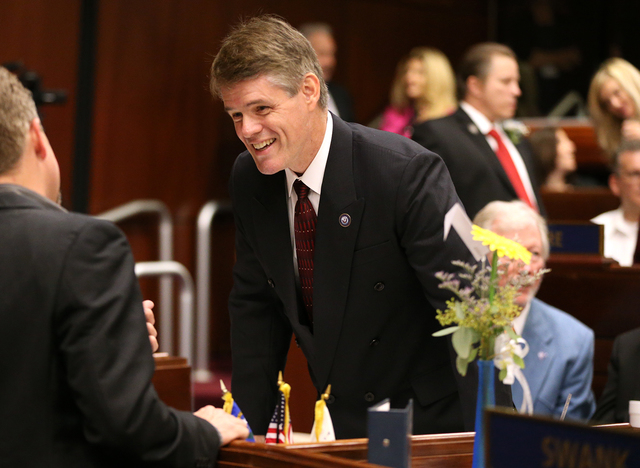
CARSON CITY — A bill that started out in the 2015 Legislature as a proposal to open Nevada’s primary elections to all voters came out of the lawmaking grinder doing nothing of the sort.
Instead, tens of thousands of voters in four Nevada legislative races won’t have any say at all in deciding who they want to represent them in Carson City. The outcome will be a done deal after the partisan June primary.
Senate Bill 499 changed decades-old election law governing how contests in Nevada are decided when the only candidates are all Democrats or all Republicans.
Previously, if there were only two contenders from the same party, candidates would bypass the primary — where voters have to be registered with that party to participate — and advance to the November general election when all voters regardless of affiliation cast a ballot. If there were three or more, the top two finishers in the primary advanced to the general.
Under the new law, if a race draws candidates from only one party, the person who gets the most votes in the closed primary advances to the general election ballot as the de facto winner.
A Democratic Senate race and two GOP Assembly races in Clark County are affected by the change, as is an open Republican Assembly seat in Washoe County.
According to the latest registration figures from the secretary of state’s office, more than 80,000 voters will be left out.
Statewide, about 234,000 Nevada voters, almost 20 percent, are registered as nonpartisan and ineligible to vote in primaries.
Early voting for the June 14 primary begins May 28. The last day to register or change party affiliation is May 24.
SB499 passed unanimously in the Senate, 27-15 in the Assembly, and was signed by Republican Gov. Brian Sandoval.
Critics argue the law disenfranchises voters and gives more power to the two-party political machine by denying a broader electorate the option to choose between what some voters might view as a lesser of two evils in the general election.
They also say it benefits the parties because they can target spending toward more competitive races when a candidate doesn’t face a general election contest.
“So, once again, we have the two political parties, which have no constitutional authority to control anything, let alone the election process, deciding who we get to vote for and how we will do it,” said Sondra Cosgrove, president of the League of Women Voters of Las Vegas Valley.
“There is no advantage to voters in SB499. It solely benefits the two political parties.”
The original bill
In its initial form, SB499 would have created a modified blanket primary system whereby names of all candidates, partisan and nonpartisan alike, appeared on the ballot. The top two vote getters would advance to the general election, but could not be of the same political party.
When the bill was heard in the Senate Committee on Operations and Elections, state Sen. James Settelmeyer said the concept “is to allow everyone to vote in the primary.”
“It’s good to give people choices,” Settelmeyer, a Minden Republican who carried the bill through the session, said at the time.
Doug Goodman, who writes a blog on election trends, was the proponent of the bill and argued open primaries would soothe voter frustration over a two-party political system and increase participation.
“By placing all candidates regardless of party affiliation or lack thereof on the same primary election ballot and then having all voters … choose the two candidates to advance to the general election, the scope and depth of the issues will be broader,” Goodman said in written testimony.
But the concept was not favorably received.
“It went down in absolute catastrophic flames,” Settelmeyer told the Review-Journal.
The final version stripped out the open primary idea and added one sentence upending the state’s long-established primary process.
It also extended the deadline for minor party and independent candidates to submit petitions for ballot qualification, an issue Settelmeyer said needed to be addressed to avoid lawsuits.
He said that change, which extends the petition deadline beyond Nevada’s June primary date, necessitated altering the primary process because the final slate of candidates for the general election won’t be known until any potential third-party candidate is certified for the ballot.
Settelmeyer said the law gives more ballot access to minor party candidates and in the end provides more choices for voters.
“All the parties supported the change,” he said. “It gave more ballot access to minor party candidates.”
Criticism and support
Goodman is disappointed with the outcome.
“I don’t think that was a good idea at all,” he said. “You’re basically saying, ‘We’re OK having a very small portion of one political party choosing who is going to represent a whole district in the Legislature.’
“A good portion of the electorate gets cut out of the process. That was not a problem that needed fixing.”
Settelmeyer sees it differently.
“I do not personally see a benefit of having two Republicans or two Democrats in a general election, because it’s not much of a choice,” he said, comparing such options as a toss-up between a Bud and Bud Light.
“A party primary by definition is supposed to send one person from the party forward,” Settelmeyer said.
State Sen. Kelvin Atkinson’s re-election bid is one that will be decided in June. He faces a newcomer, Stephen Munford, in the predominantly Democratic district.
“It is incumbent upon the other party or nonpartisans to field the candidate they want in these races so they can vote for them,” said Atkinson, D-Las Vegas.
“We all try to find candidates for these races,” he said, emphasizing that a Republican, minor party or an independent candidate could have filed for his seat and didn’t.
He also said voters who want a say in a particular race could switch their party registration if they feel that strongly.
“They do have a voice and they’ll always have a voice, and they certainly can do that if they have someone they want to vote for or vote against,” Atkinson said.
Settelmeyer agreed, especially if voters live in a district that is overwhelmingly Democratic or Republican. But in three Assembly districts affected this year, the number of “other” voters exceeds those eligible to vote in the primary.
State Sen. Patricia Farley, a Las Vegas Republican and chairwoman of the Senate Committee on Legislative Operations and Elections, said she would be open to changes in 2017.
“You want to get everybody’s voice in the process,” she said.
“I would like to see it open up in the primary,” Farley said. “If I’m a registered independent and I like a Republican, I shouldn’t have to change my party affiliation.”
Settelmeyer, meanwhile, stands behind the modified open primary idea.
“I would still support and vote for the bill that I brought,” he said. “To me it’s about the concept of having bold choices in which way we wish to go forward.”
Contact Sandra Chereb at schereb@reviewjournal.com or 775-461-3821. Find @SandraChereb on Twitter.
Four Nevada legislative races that will be decided in the June primary under a new law passed by the 2015 Legislature. Below are which party will decide; total active voters based on latest secretary of state figures; majority party registration numbers and percent of total; and number of other voters cut out of the process:
Senate District 4 — Democrats
Incumbent state Sen. Kelvin Atkinson, challenged by Stephen Harvey Munford.
Total voters: 48,787
Democrats: 29,917, 61 percent.
Other: 18,870
Assembly District 13 — Republicans
Incumbent Assemblyman Paul Anderson, challenged by Leonard Foster and Steve William Sanson
Total voters: 33,808
GOP: 13,995, 41 percent
Other: 19,813
Assembly District 19 — Republicans
Incumbent Assemblyman Chris Edwards, challenged by Constance Foust
Total voters: 30,135
GOP: 11,802, 39 percent
Other: 18,333
Assembly District 26 — Republicans
Open seat: Lisa Krasner vs. Jason Guinasso
Total voters: 43,827
GOP: 20,098, 46 percent
Other: 23,729











